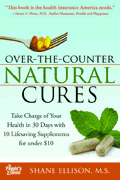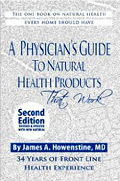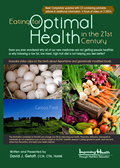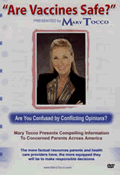HIGHLY PATHOGENIC E. COLI GENIE IS OUT OF THE BOTTLE
PART 1 of 2
By
Byron J. Richards, CCN
June 13, 2011
NewsWithViews.com
Can You Withstand an Attack?
Byron RichardsThe tactics are straight out of the terrorist textbook. A wave of suicide bombers hits the front-line defensive fortifications. Most of this first wave blows holes in the defensive barriers and leaves a battlefield of inflammatory damage and debris. Some of these first wave terrorists hijack important communication systems relating to the natural defense mechanisms. If these defense mechanisms fail, invasion of the body is certain. Rather than that, the defense mechanisms, faced with impending doom, are forced to allow an inflammatory diarrhea response. But wait, the second wave of the terrorist attack is now under way. They are taking advantage of the damaged battlefield of the first wave of attack. They are armed with highly toxic chemical weapons, the type that is banned from “humane warfare.” Welcome to the world of infectious E. coli. And in Germany, welcome to the world of superbug infectious E. coli – resistant to antibiotics and armed with some of the most devastating toxins ever known.
The German public is the first to be attacked by a large-scale outbreak, but this type of E. coli problem already exists in the United States. Do you have the confidence and skill to prevent this enemy from taking root in you or defeating it if it does? Even the most infectious E. coli may not be able to cause any problems if you have a competent defense system that can fend off the attack. The determining factors are the current balance of bacterial powers within your digestive tract, the amount of existing inflammation within your digestive tract, the amount of stress you are under, the ability of natural factors to disrupt quorum sensing, and your ability to bolster your gut barrier.
E. coli 101
E. coli was discovered in 1885 by the German physician Theodor Escherich, thus its name Escherichia coli (E. coli). E. coli is a normal inhabitant of your colon, part of the natural balance of foreign bacteria that make up an ecological rainforest with diverse and important roles for human health. Under healthy circumstances E. coli is a friendly farmer toiling in the fields, helping to recycle trash and actually assisting in the healthy balance of GI tract bacteria. The human genome relies on the genomic work of bacteria for many substrates of compounds required for human health, including the contributions made by friendly E. coli.
E. coli is very good at gene swapping, which sometimes leads to the acquisition of virulence factors that are highly toxic and pathogenic to the human host. In these circumstances E. coli adopts a germ gang formation (biofilm), which means a single bacteria is now part of a team that has nothing good on its mind. Their activities are coordinated by molecular signals which are referred to as quorum-sensing molecules. Quorum-sensing molecules are essentially a communication system that is encouraging a coordinated attack.
E. coli is rod shaped and many have filament projections (flagella) that allow them to move around and stick to human cells. Once infectious E. coli stick to a human cell they can inject toxins and other virulence factors into the human cell, such as an epithelial cell that lines your digestive tract or urinary tract. Virulence factors are trying to hijack or kill the human cell. They cause disruption of the cell membrane, which enables the bacteria to gain entry into the human cell while causing water loss from the human cell and preventing it from reacquiring water – which is what triggers diarrhea. Once inside the human cell they gain protection from the immune system, set up shop in a protected structure within the cell (vacuole), replicate as a parasite on the nutrients in the cell, as well as hijack the communication system of the human defense mechanisms and begin turning it to their advantage.
Highly pathogenic E. coli readily stick to and invade epithelial cells of the digestive or urinary tract lining. Pathogenic E. coli superstrains have many tricks up their sleeves. They can hijack the macrophages of your immune system, replicate inside them without detection by your immune system, and induce your macrophages to inappropriately secrete large amounts of inflammatory TNFa. In other words, not only are they highly toxic in and of themselves, they can turn your own immune system into part of their toxic team.
E. coli is a member of a large family of bacteria called enterobacteriaceae. Infectious Salmonella is also a member of this family, which uses many similar mechanisms as pathogenic E. coli to attack the human host. Thus, studies on Salmonella infection are highly relevant to E. coli. Scientists are just beginning to unravel the molecular complexity of what is going on with these infectious bacteria.
Your first line of natural defense is to prevent E. coli from colonizing too many of your human cells. If that happens, then you must also prevent them from multiplying. And finally, you absolutely must prevent them from breaching your gut barrier and entering your body, as that can be a life-threatening situation requiring urgent medical treatment (as is currently seen in Germany). The current German E. coli outbreak is a superstrain of E. coli that is resistant to antibiotics, has two powerful toxins, and can attack red blood cells causing them to die. This results in the hemolytic-uremic syndrome which can cause severe anemia and kidney failure – potentially life-threatening.
The United States is Already Under Attack
While the story in Germany is getting everyone’s attention, the problem already exists in the United States and experts at our Centers for Disease Control (CDC) are very concerned. There are many different kinds of E. coli. In the past, most dangerous infections came from a type known as O157:H7, which produces the Shiga toxin that destroys red blood cells leading to anemia and kidney failure. Efforts to control this strain in the food supply, typically by feeding antibiotics to farm animals, has led to new pathogenic strains that the experts call “non-O157” types.
“For a number of years, almost all of the strains of this kind of E. coli [highly infectious] were that O157:H7,” says Michael Osterholm, director of the Center for Infectious Disease Research and Policy at the University of Minnesota. “Over the past 15 years, we’ve seen a very sizable increase in the number of non-O157:H7 strains.”
The E. coli strain in Germany is the new kid on the block, referred to as O104:H4. Our CDC first identified this strain two years ago in Eastern Europe. Experts are concerned because this strain is harder for them to identify and it is clearly on the rise in the U.S., along with many other potentially infectious non-O157 types.
The outbreak in Germany has over 2700 documented cases, 600 cases of kidney failure, and 25 deaths so far. It is getting attention because it is one large outbreak. However, U.S. health officials estimate that at least 100,000 Americans suffer infectious E. coli attacks each year, causing thousands of hospitalizations and around 80 deaths per year. The problem in the U.S. is already larger than the German problem – it is just more isolated in terms of a rapid outbreak. Over half of these serious E. coli food poisoning problems in the U.S. are now the non-OH157 types that include the O104:H4, which is why alarm bells are quietly going off at our CDC.
Furthermore, many Americans have high levels of infectious E. coli that are causing major health problems but are not classified as a food poisoning situation. It is now known that up to 87% of patients with Crohn’s disease, ulcerative colitis, and irritable bowel syndrome have higher-than-normal levels of infectious E. coli and that in over 1/3 of these cases it is some of the most pathogenic E. coli that is causing or contributing to their problems.
Anyone with diarrhea on a short-term basis should be thinking E. coli attack. Anyone prone to ongoing diarrhea, even if it comes and goes or alternates with constipation, should be thinking that they have an ongoing battle with infectious E. coli that has set up shop in their colon. While this may not always be the case, the odds are that infectious E. coli or one of its cousins is involved.
E. coli’s interaction with the human host, both as friend and foe, has been going on for millions of years. As scary as E. coli may sound, the human defense system has to be better otherwise we as a race would not have survived. There is no point living in fear of E. coli, as the fear-related hormones actually help it spread. There is a point in minimizing your risks and understanding what you can do if you are under an attack or have an ongoing lower-grade problem that is interfering with your quality of digestive health.
Basic Precautions
There are many basic precautions that are common sense. Some of these are widely promoted by public health officials and others are ignored completely by public health officials – for fear of implicating groups like the AMA and doctors who are actively contributing to infectious E. coli risk.
Hygiene is important, especially for workers in the food industry. The failure to wash hands thoroughly after going to the bathroom can readily pass along infectious E. coli. Such contamination could occur at any point in the food production and distribution process – which is why tracking down a major outbreak is such a difficult proposition.
Dairy and beef cattle, as well as pigs, are major sources for potential E. coli issues. This problem has been made far worse by the use of antibiotics to “prevent” E. coli infection in these animals. E. coli rapidly mutates in response to antibiotics, so it is not at all surprising that new strains of E. coli are antibiotic resistant. Furthermore, E. coli is so good at gene swapping that it helps other bacteria, like Staphylococcus, gain antibiotic resistance. This is why the meat in our food supply, from these factory farms that raise unhealthy animals, has set the stage for a future of food poisoning outbreaks. I wouldn’t buy meat of this type, although it makes up the majority of meat in the U.S. food supply. Obviously, such poor-quality meat should be fully cooked.
| Subscribe to the NewsWithViews Daily News Alerts! |
The
vegetables most commonly associated with outbreaks of E. coli
are sprouts, cucumbers, and spinach. In general, all vegetables should
be washed thoroughly and many people may choose to use some form of
disinfectant as a soak or wash.
The medical profession, with its rampant over-use of antibiotics, has
clearly helped produce antibiotic-resistant
strains of E. coli and other superbugs. Additionally, even
one or two courses
of antibiotics can alter the digestive balance of power wherein
undesirable strains of unfriendly bacteria begin to dominate the landscape
of your digestive terrain – a problem that can go on for years.
This is a different problem that antibiotic resistance. It is a very
dangerous alteration of the ecological rainforest that should comprise
digestive health. The blame falls squarely on the AMA and doctors, who
ironically are the very people you are forced to turn to if you have
a severe E. coli attack. Use antibiotics only as a last resort.
For part two click below.
Click here for part -----> 1, 2,
� 2011 Wellness Resources, Inc. - All Rights Reserved












 Share
This Article
Share
This Article







